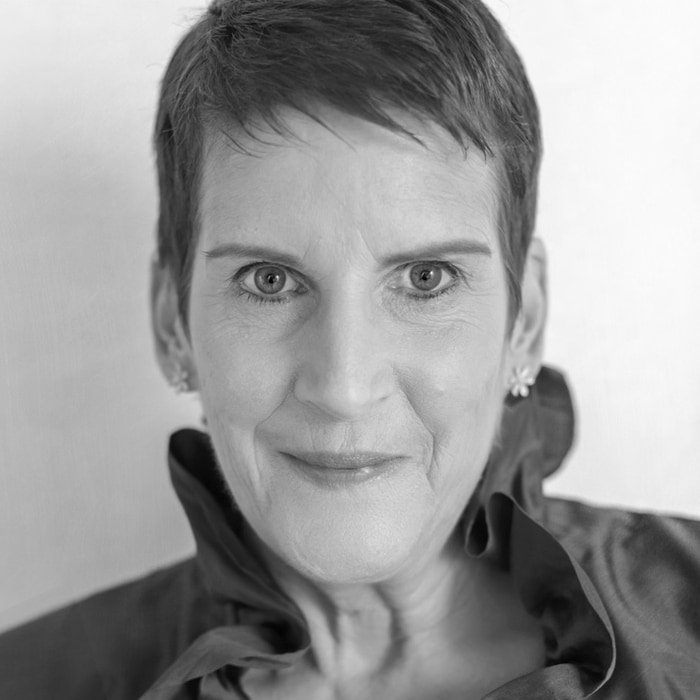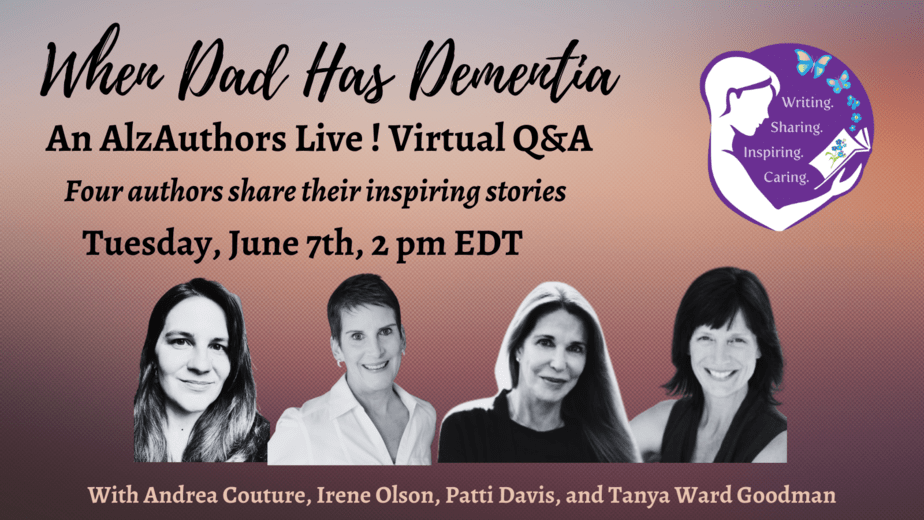Caring for a father with a dementia diagnosis brings to caregiving its own special set of circumstances and considerations. In this AlzAuthors Live! Virtual Q&A we explored these changes and challenges with four of our authors. Their stories will inspire and empower you on your own dementia journey with your dad.
Meet Our Panelists
 Andrea Couture: author of Embracing What Remains, a memoir
Andrea Couture: author of Embracing What Remains, a memoir
Andrea recently lost her beloved father, a renowned surgeon, to Alzheimer’s. She wrote about her family’s caregiving journey and is the first of our authors to write about caregiving during COVID. “My hope in writing my memoir was to reach other children of Alzheimer’s or other terminal illnesses and show how a diagnosis and decline can bring many feelings, including denial, anger, sadness, frustration, and love, but most of all can lead to hope and acceptance. The road to acceptance was paved with a process of transformation for myself and my family.”
Irene Olson: author of Requiem for the Status Quo, a novel
Irene survived being an Alzheimer’s family caregiver twice: to her father and her sister-in law. Her goal in writing Requiem was to encourage and educate others who might be called upon to take on the role of family caregiver. “My struggles were the struggles of Every Caregiver – the universal character that exists nationwide and, in every country, worldwide. Like many carers, I had the unfortunate incident of losing my identity where my parent was concerned, of endlessly repeating myself and losing my temper when such repetitions became too much for my limited abilities as a learn-as-you-go, on-the-spot person who managed as I could, and failed when I couldn’t. I too was thrust into the role of trying to maintain my loved one’s dignity while endeavoring not to lose my Irene-ness in the process. That outcome is a real threat to every caregiver’s life: losing who you are, thereby failing to keep the personhood on which you need to rely when the failures outnumber the successes.” Patti Davis: author of The Long Goodbye and Floating in the Deep End: How Caregivers Can See Beyond Alzheimer’s, memoirs and caregiving guide
Patti Davis: author of The Long Goodbye and Floating in the Deep End: How Caregivers Can See Beyond Alzheimer’s, memoirs and caregiving guide
Patti is the daughter of President Ronald Reagan, who opened the world’s eyes to to the disease when he disclosed his own diagnosis in his Letter to America in 1994. “I made some decisions early on that would end up grounding me for what turned out to be a ten-year journey. I told myself that my father’s soul couldn’t have Alzheimer’s. I believed that if I kept holding to that, I could hopefully find apertures through the disease and get glimpses of a soul that can’t be sick. At the end of my father’s life, he opened his eyes seconds before he died, and he was present, aware. His soul showed up and I felt my faith had been validated. I also decided to keep asking, What can I learn here? I didn’t want to make judgements that would cloud my vision, I wanted to stay open.”
 Tanya Ward Goodman, author of Leaving Tinkertown, a memoir
Tanya Ward Goodman, author of Leaving Tinkertown, a memoir
Tanya grew up in the mountains of New Mexico in a roadside attraction built by her father. Throughout his Alzheimer’s journey she documented their experience with photographs and journaling. “I did not mean to write a book. After my father died, I sat down with my journals to try to understand what had happened to me and to my family in a five-year period that began just before I turned thirty. I often say that caregiving is all about being just hands and feet. You’re running and doing. You’re putting out fires (in my case both real and metaphorical), without any time for introspection or emotion. As I burrowed into my stacks of yellow legal pads, it was the head and the heart that I was after.”
Potential topics for discussion
• Seeing your father (and yourself) in a new light after a dementia diagnosis
• Dealing with a forever altered relationship
• Becoming a caregiver
• Maintaining familial roles
• Handling the many losses of dementia
• Managing behavior changes
• Collaborating with siblings
• Living with guilt
• Coping with grief
• Handing care over to outside carers, i.e. home care, assisted living, memory care
Please contact alzauthors@gmail.com with any questions or concerns.


